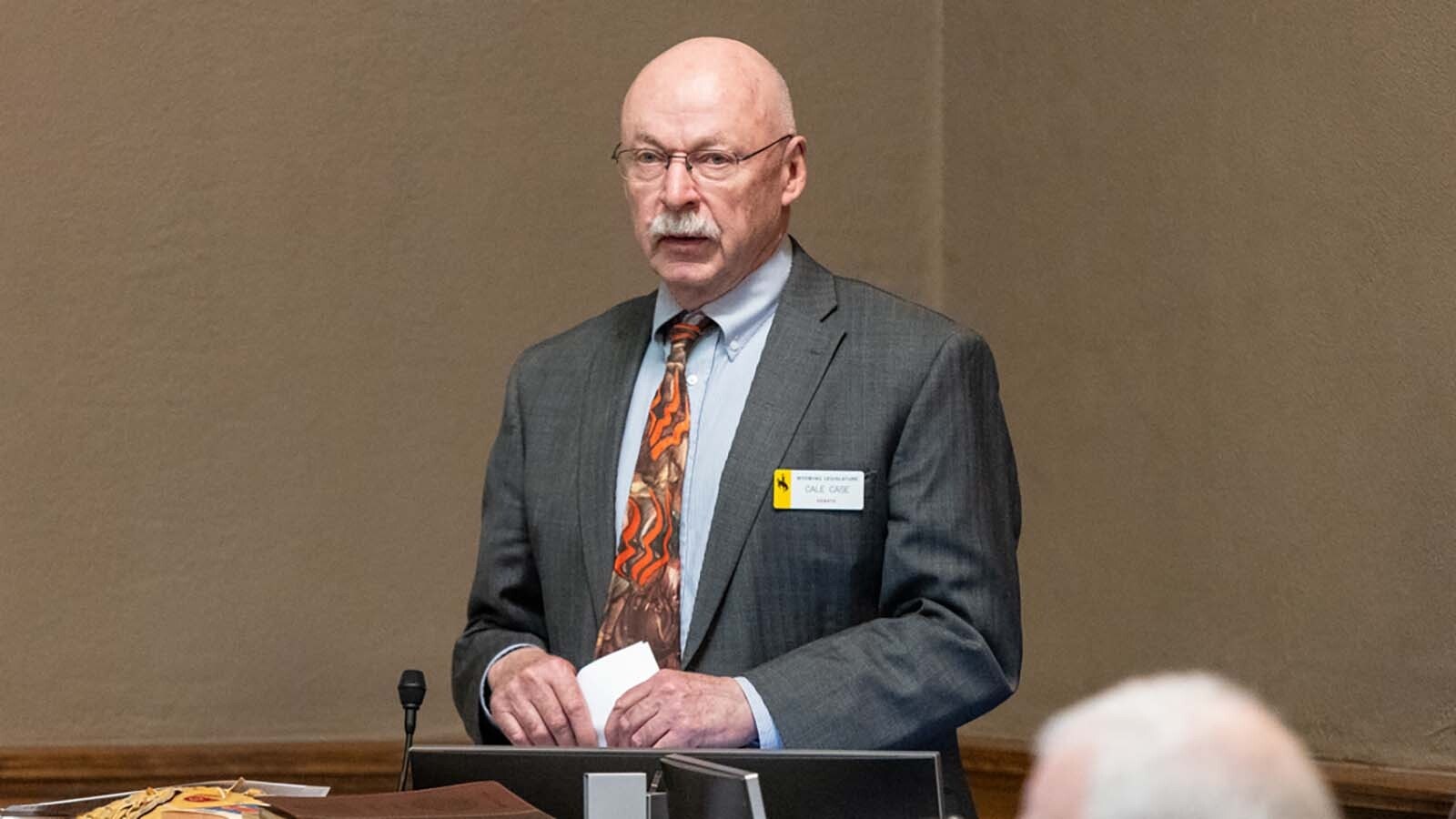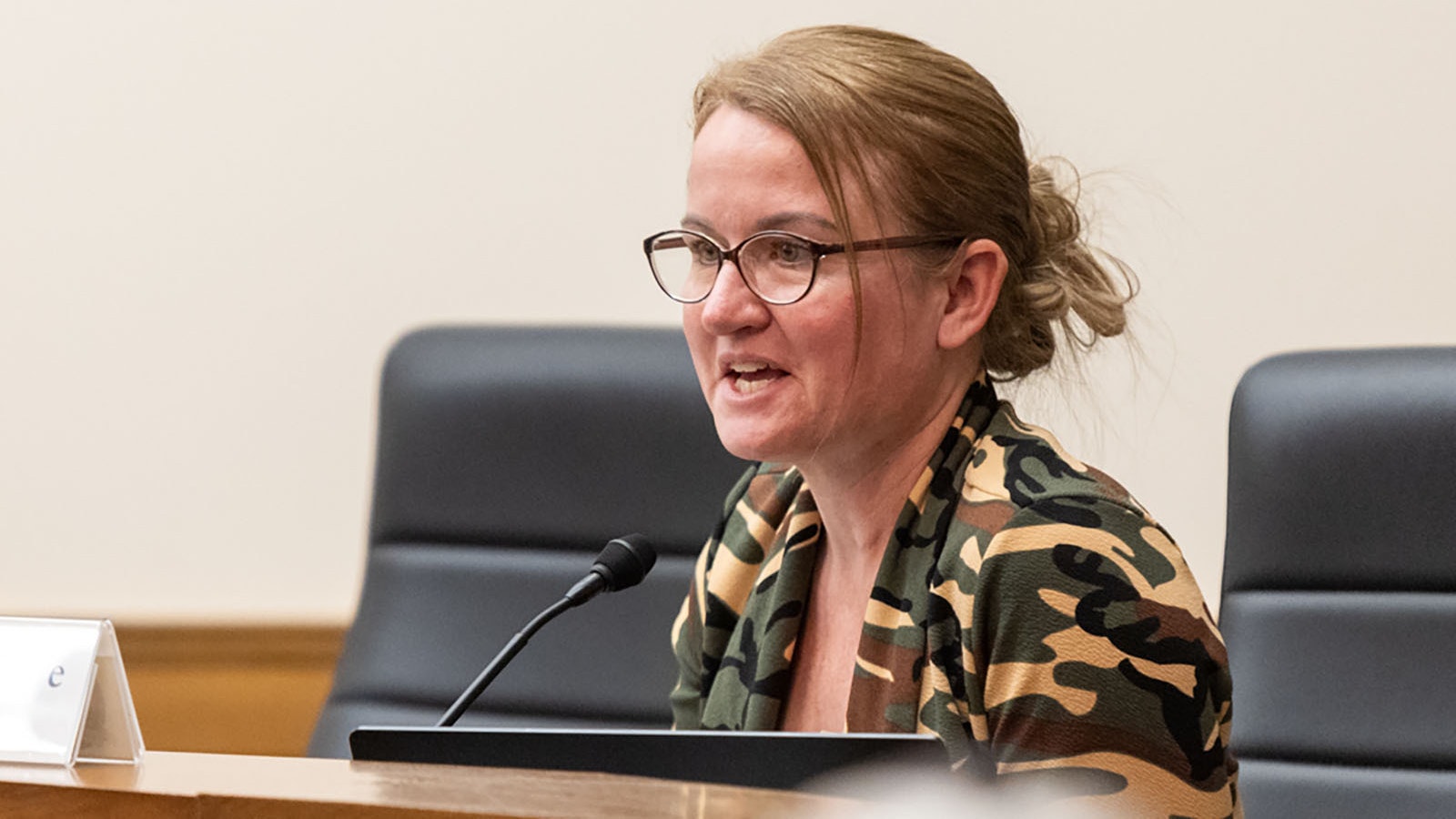The U.S. House Natural Resources Committee has voted to allow a collection of counties in Utah and Nevada to sell parcels of federal land.
While the sale of public land glows like political kryptonite in neighboring Montana and Colorado, it’s part of an aggressive push by Wyoming’s delegation in Washington, D.C., to transform federally owned land into more impactful revenue generators for the local governments nearby.
Rep. Harriet Hageman voted at about midnight Tuesday to allow the Utah and Nevada counties to sell around 500,000 acres of federally owned land. The provision came as an amendment to a sprawling bill covering several issues, including energy development on public land.
The energy development piece is what Hageman focused on in a statement celebrating the Natural Resource Committee’s work this week.
“Wyoming can generate extensive revenues through our rich energy portfolio, but has long been stifled by bad actors peddling a crazed green energy political agenda rather than leveraging our energy capital to better the lives of everyday Americans,” said Hageman.
The legislation advanced by the House Committee on Natural Resources will mandate oil, gas and coal leasing and stipulate the requirements for such lease sales.
This will “generate $18.5 million in revenue for the United States by bolstering the extraction of energy and mineral resources in states like Wyoming,” stated Hageman.
Red, White And Blue Issue?
While Hageman’s celebratory statements emphasized overhauls to the leasing process for extractive industries, Republican representatives from Montana and Colorado sounded an alarm over the amendment pointing the way toward the sale of public federal lands.
The land sale provision put forward by Republican Reps. Mark Amodei of Nevada and Celeste Maloy of Utah aspires to unload thousands of acres in support of affordable housing, along with infrastructure projects, like airport and reservoir expansions in Utah.
In Clark County, Nevada, the amendment would allow the sale of about 65,129 acres, primarily for affordable housing in and around Las Vegas.
Around Reno in Washoe County, the amendment identifies 15,860 acres for sale, again reportedly in support of affordable housing and economic development.
In Lyon County, around 12,085 acres could be sold to the city of Fernley for development as the Tahoe-Reno Industrial Center II.
None of that sounded good to Rep. Jeff Hurd, R-Colorado, and Rep. Ryan Zinke, R-Montana, who both opposed the amendment.
Zinke stated before a House Natural Resources Committee vote, “It’s a no now. It will be a no later. It will be a no forever.”
Recognizing the rift among House Republicans created by the public lands amendment, Zinke said, “Public land is not a Republican or Democrat issue; it’s an American issue, and we should approach it within the framework of being red, white, and blue.”
Midnight Sausage
The states with the largest percentage of land that’s federally owned are Nevada (80.1%), Utah (63.1%), Idaho (61.9%), Alaska (60.9%) and Oregon (52.3%).
Wyoming boasts the sixth largest percentage of federally owned land at 46.7%, according to the U.S. Congressional Research Service.
That’s why lots of public land users in Wyoming are following the current budget reconciliation, said Ryan Semerad, a Casper attorney who works on public lands issues.
Semerad said initially the proposed legislation did not include language about selling off public land.
“A lot of conservationists and recreationists we’re super thrilled,” Semerad told Cowboy State Daily Thursday.
“Well, come May 6-7, there is a midnight amendment that is proposed, a 33-page amendment that says, ‘Actually, we are going to sell,’” said Semerad.
Like Republican voters in Colorado and Montana, said Semerad, there are many in Wyoming opposed to selling public land.
“Some 60% of Wyoming folks are like, ‘Yeah, we don't really want that sold,’” said Semerad, citing a recent poll by Colorado College.
While many across the state are keeping tabs on this issue, Semerad said, “I think in Wyoming, we're just too sleepy about it. Right now, this is just Nevada and Utah. Who’s to say they don’t do the next one at 2 a.m. tonight for Elk Mountain Ranch?”
That example couldn't happen, because Elk Mountain Ranch is privately owned.
It’s adjacent to popular hunting areas on public land. It became the flashpoint of a contentious legal case, over whether hunters had the right to “corner cross.” Meaning, whether it was legal for them to cross a pinpoint at the adjoining corners of square public land parcels that border the ranch property.
Semerad wondered aloud if one day hunters might show up to enjoy an available tract of public access landand hear, “Yeah, we just sold it.”
“This is one of the most egregious attempts we’ve seen to sell off public lands behind closed doors,” said Erik Molvar, executive director of the Wyoming-based Western Watersheds Project. “It’s a late-night, backroom deal to liquidate western public lands — no public process, no environmental review, and no accountability.”
David Madison can be reached at david@cowboystatedaily.com.





